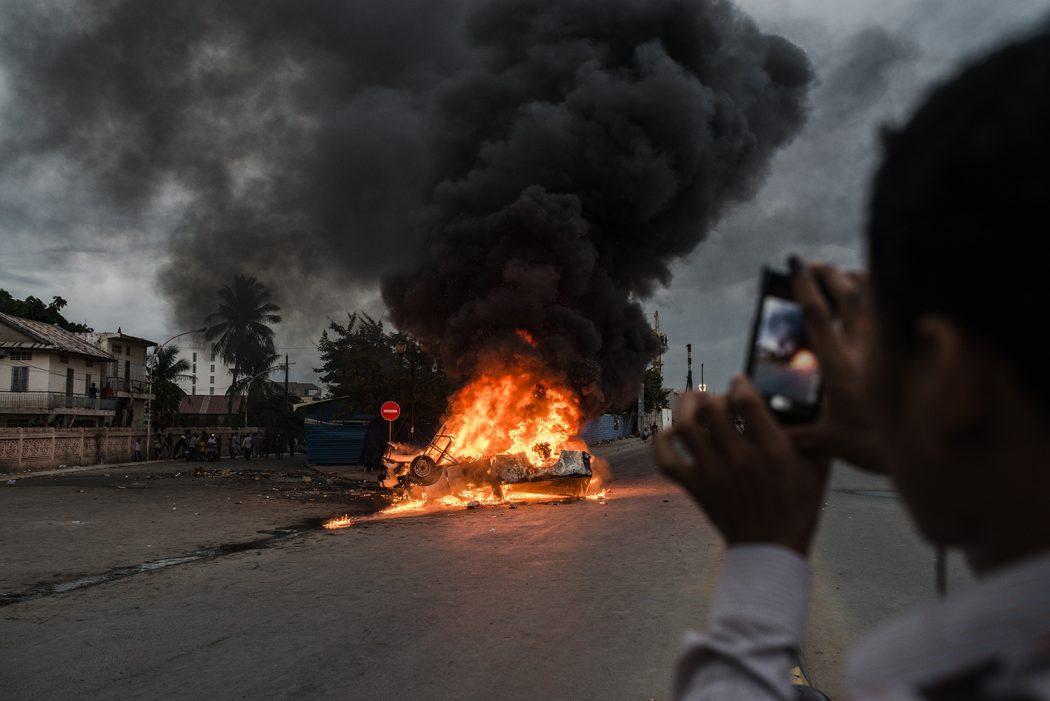A Cambodian Spring review: remarkable story about a community trying to save itself from destruction
Dir Chris Kelly, 121 mins (15), featuring: Venerable Luon Sovath, Tep Vanny, Toul Srey Pov

Your support helps us to tell the story
From reproductive rights to climate change to Big Tech, The Independent is on the ground when the story is developing. Whether it's investigating the financials of Elon Musk's pro-Trump PAC or producing our latest documentary, 'The A Word', which shines a light on the American women fighting for reproductive rights, we know how important it is to parse out the facts from the messaging.
At such a critical moment in US history, we need reporters on the ground. Your donation allows us to keep sending journalists to speak to both sides of the story.
The Independent is trusted by Americans across the entire political spectrum. And unlike many other quality news outlets, we choose not to lock Americans out of our reporting and analysis with paywalls. We believe quality journalism should be available to everyone, paid for by those who can afford it.
Your support makes all the difference.Director Chris Kelly took nine years to complete this remarkable film about land-rights protests and political skullduggery in Cambodia. The subject matter may seem of marginal interest for a Western audience but the documentary works not just as investigative journalism but also as a universal story about a community trying to save itself from destruction.
As the film starts, a big corporation, Shukaku Inc, is trying (with government backing and funding from the World Bank), to “develop” the Boeung Kak lake in Phnom Penh. This will mean filling the lake with sand and evicting all the families who live around it. Needless to say, these families have been offered very meagre compensation. They don’t want to budge. They therefore launch their own protest movement.
The film focuses on three main characters. Venerable Sovath is a cheery, camera-wielding Buddhist monk who sees the misery of the people around him and decides to intervene, even if his fellow monks frown at his political involvement. Toul Srey Pov and Tep Vanny are young mothers at the forefront of the protests.
Cambodian politics as depicted here is very dirty indeed. “The government is like the Khmer Rouge. They don’t kill with weapons, they kill with corruption,” one protester notes of the Hun Sen regime. “They [the government] don’t want us living in their beautiful city,” says another. We are in a world of forcible evictions and of casual police brutality. The corruption seeps into every part of the society.
Kelly captures horrific footage of protesters being harassed, attacked and wounded. We see people standing helplessly by as their homes are demolished. The film shows the exhilaration and camaraderie the protesters feel as they fight to protect themselves but also the splits that soon emerge among them. The protesting takes a heavy toll on their family lives. They begin to accuse one another of being government spies. Two of the women end up on different sides of the barricades.
The film is not one of those pieces of reportage in which the Western journalists look in from the outside at troubling events. We feel throughout that Kelly is at the heart of the story. It helps that the protesters all film everything with their cell phones and digital cameras. If the monk is arrested or an old lady is hit by a rock, someone is bound to have captured the moment. James Holden’s eerie, Philip Glass-like musical soundtrack adds to the sense of foreboding that is evident throughout the film.
Join our commenting forum
Join thought-provoking conversations, follow other Independent readers and see their replies
Comments